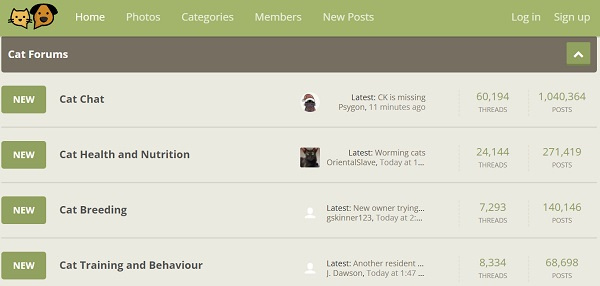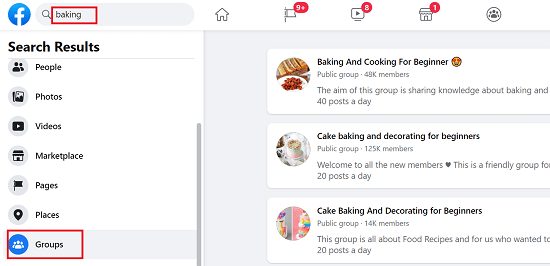What comes to mind when you think about marketing and traffic generation? Social media and SEO are the two things that usually spring to mind first, but have you considered traffic from forums and groups?
For those who are not familiar with the terms, a forum is a popular means of communication that brings together people on a discussion site to discuss their common interests.
The most popular forums have thousands of users who regularly participate in forum "threads." A thread is a conversation between different members of the same forum on a particular topic.

Groups, like forums, are places where people communicate about shared interests.
A few examples of groups:
Facebook Groups
Groups.io
Kajabi Groups
What are the Advantages of Using Groups and Forums?
One advantage is that there are forums and/or groups for virtually any topic under the sun. Imagine a subject, and there will be a forum or a group somewhere!
Let's illustrate with an example. Say you are a food blogger running a small bakery business from home. You can join forums and groups specifically related to baking. A baking forum will have members who are genuinely interested in baking. Talking to like-minded people will make it easier to share your products and drive traffic to your food blog.
Another advantage of forums and groups is that they help you build new connections. Meeting like-minded people who share similar interests can help you develop long-lasting relationships.
Forums are also a great place to gather new ideas and get quick feedback. You could share an article that you've written and get feedback within hours.
By sharing great content, you can pique the interest of the forum's users, encouraging them to visit your blog. Driving traffic from forums and groups is a simple way to boost your blog's audience - and it's free!
Forums are also a viable way to earn backlinks, which boost the credibility of your blog and help with search engine rankings.
How to Drive Traffic Using Forums and Groups
Forums and groups give you access to thousands of users in your target audience. You have the potential to persuade these users to visit your blog, but only if you get it right. Get it wrong, and at best, you'll get no results. At worst, you'll find yourself banned from the group or the forum.
Here's how you can get it right.
Find the Right Forum or Group
The first step is to find forums or groups in the right niche. Do a Google search for [subject+forum].
For example, if your blog is about house décor, do a Google search for 'house décor forums,' or 'home décor' forums, and other similar terms.
To begin with, look for forums that have a lot of activity. Don't waste time and energy on low activity forums. Look for a big forum. That's a good place to start.
To find groups on Facebook, type the subject in the Facebook search bar and choose 'Groups.'

Other places to look for groups in your niche include Groups.io, Reddit, and Quora Spaces.
Create a Forum Profile
Your profile matters because other forum users will click through and read it. Select a username that reflects what your blog is about. Using informal or wacky usernames is not a good idea. Be creative but professional.
Upload a photo of yourself rather than using an avatar or logo. A picture of yourself helps other users to relate to you. It humanizes your interactions. And, people will take you more seriously.
Add your blog URL and some information about you/your blog. Keep the text short. Two to four sentences are usually enough. If you join multiple forums, keep your profile consistent across them all.

Some forums allow users to add a signature, with or without a link. Where signatures are permitted, they are usually restricted to users who have made a certain number of posts. However, if you do get the chance to take advantage of a signature, add a short tag line that describes in one sentence what you and your blog are all about!
Join, but Observe
Don’t be in a rush to start posting the moment you join a forum or group. Instead, take the time to learn who the influencers are. Learn which topics are most popular and which areas of the forum are the most active.
By being a keen observer, you can get familiar with the culture of the forum or group. When you start posting, you’ll be able to do so in a way that genuinely connects with other users.
Start Posting, but Not too Much
When you're ready to start posting, don't post too much or too fast. Begin posting replies on existing threads and then gradually creating some new threads of your own.
Show users that you are investing time in the forum but focus on making yourself useful to others. Answer questions or point to resources that could provide an answer to the questions. Don't point people to your own blog right at the beginning. The initial goal is to build trust and credibility.
Tap into Influencers
When you observe a forum or group in the beginning, it helps you identify key influencers. Keep track of the discussions they are involved in and add something valuable to the conversation. Influencers tend to get more attention; therefore, if you regularly post on those threads, your posts will automatically get seen by more users.
Forum and Group Etiquette
The Rules
Every group or forum has a set of rules. Make sure that you read and understand them before posting.
Post in the Correct Sub-Forum
Forums are always divided up into categories or sub-forums. A common mistake made by new forum users is posting in the wrong category. This creates extra work for the forum moderator, who needs to move the post to the correct category. Some moderators will permanently delete a post if it’s in the wrong category.
Read Your Posts Before Submitting Them
Before you publish, read through to make sure your message is clear and easy for others to understand. Check for spelling mistakes, grammatical errors, and tone. The Grammarly app allows you to set a specific tone for any type of written content. It’s recommended to use a neutral tone in a forum or group.
Avoid putting entire words in caps because it represents shouting, and avoid overuse of bolding and punctuation such as exclamation marks.
Wrapping Up
Writing posts for forums and groups is not the same as writing posts for your blog. Your forum/group posts will always be written from a first-person perspective. Most of them will be relatively short and to the point. Although, it can be helpful to occasionally post longer content in the form of a guide or detailed reply to a question.
When you add value to a group or forum by sharing your knowledge or answering questions, you begin to position yourself as an expert and gradually become a respected and trusted member of the community. By posting high-quality content, you will create engagement, which will, in turn, result in targeted traffic to your blog.



